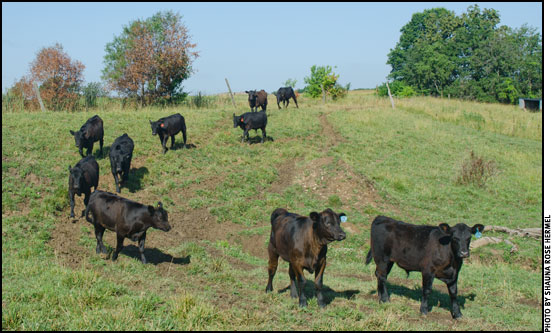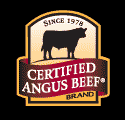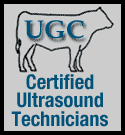
Protect Calves from
a Summertime Struggle
Don't let summer pneumonia get the best of your calves and their respiratory health.
The spring calving season is nearly finished, and cow-calf pairs are out to grass. However, even though the herd is on grass, calves at this age are still susceptible to disease. Respiratory disease may challenge calves even if you've been vigilant in vaccinating the cows and the herd seems healthy. Suckling calves on pasture are susceptible to respiratory disease, commonly known as "summer pneumonia," during July, August and September.
While the calf isn't facing most of the common stressors that cause disease — commingling, transportation, stress and confinement — certain weather conditions can cause problems. Warm daytime temperatures that contribute to heat stress, combined with cooler nights and lack of plentiful fresh water, can wreak havoc on a calf's immune system. This worsens in areas where warm temperature is combined with high humidity. The temperature swings, combined with dust, dry pasture conditions and declining maternal immunity, can result in stress and increased susceptibility to disease.
"To prevent pneumonia, it is important to vaccinate those young calves at spring turnout, or branding time," says Jerry Woodruff, professional services veterinarian with Boehringer Ingelheim Vetmedica Inc. (BIVI), "The thought years ago was that these young calves didn't have an advanced-enough immune system to respond to vaccines, but we've discovered that they do respond very well to vaccines at a young age."
Woodruff adds that it is important to prevent disease during the summer months because it is more difficult to observe and treat while calves are on pasture.
Protecting calves against known causes of summer pneumonia, including bacteria like Mannheimia haemolytica, which is commonly found in the nasal passages of calves, is key to helping prevent respiratory disease. Viruses found in the cow-calf herd, such as infectious bovine rhinotracheitis (IBR), bovine viral diarrhea (BVD) and bovine respiratory syncytial virus (BRSV), can also promote bacterial infections in the lungs once the colostral antibodies diminish in the calf.
If your cow herd has already been vaccinated prior to breeding with a modified-live virus (MLV) vaccine, it is safe to use that MLV vaccine on your suckling calves. Travis Van Anne, BIVI professional services veterinarian, recommends using an MLV vaccine in cows and calves if possible to help ensure a more complete immune response in the calf crop.
"I believe a five-way MLV vaccine is needed in the spring. A vaccine like Pyramid® 5 + Presponse® SQ will give you coverage against BVD, IBR, PI3 (parainfluenza-3 virus ) and BRSV, as well as protection against Mannheimia haemolytica. This will help protect the calf against summer pneumonia," Van Anne says.
He adds, "The shots we give at branding or spring turnout prime the immune system in that calf so when he receives the next vaccination around weaning time, he will mount a more complete immune response for the challenges he faces at weaning or at the feedyard."
Editor's Note: This article was provided as a news release by Boehringer Ingelheim Vetmedica Inc. as part of its Prevention Works approach to cattle health.

[Click here to go to the top of the page.]











